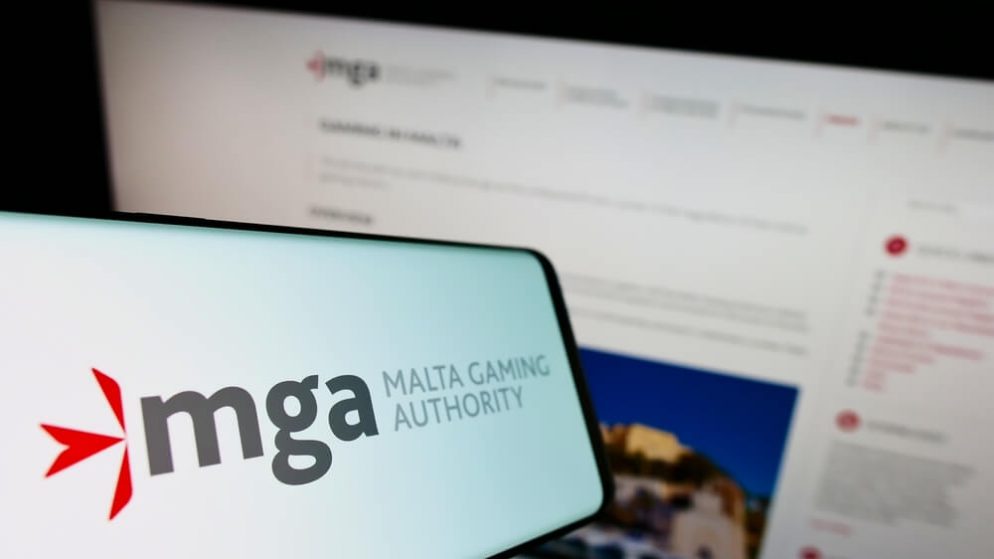

The online sports betting landscape in the US has experienced a major upheaval as Australian sportsbook PlayUp announced the temporary shutdown of its operations in Garden State. This decision came on the heels of the New Jersey Division of Gaming Enforcement (DGE) revoking the transactional waivers that allowed the operator to offer sports betting services in New Jersey.
Despite having lots to offer gamblers in the country, PlayUp’s journey in the country’s online sports betting market has been tumultuous, to say the least. PlayUp’s entry into the US was marked marred by regulatory compliance issues that have ultimately led to its temporary shutdown in New Jersey and several other key states such as Ohio.
The DGE’s decision to revoke transactional waivers stemmed from the operator’s inability to meet the stringent regulatory standards that New Jersey has become known for. While the operator had secured authorization to debut an online casino platform in New Jersey, it had not yet introduced the online casino to the market.
The DGE’s order therefore effectively terminated PlayUp’s contract to offer iGaming in the state. It is worth noting that the sequence of events leading up to PlayUp’s temporary shutdown in New Jersey is quite considerable. The DGE had requested various financial information from the operator related to its operations in the state including tax remittances, payroll records, as well as bank statements.
However, PlayUp failed to provide the necessary information within the stipulated deadline. This non-compliance with regulatory requests further strained PlayUp’s relationship with the DGE. When an operator fails to comply with regulatory requirements, it raises concerns regarding their commitment to responsible betting practices and regulatory oversight.
For PlayUp, the non-compliance not only resulted in operational shutdowns but also cash doubt on the operators’ capacity to operate within the confines of the laws. In an industry where transparency is so important, even the slightest hint of non-compliance can tarnish an operator’s reputation, as well as erode trust among the players.
The revocation of transactional waivers by the New Jersey Division of Gaming Enforcement has highlighted the importance of adhering to strict regulatory standards. While the iGaming market in the US presents considerable opportunities, it also demands a comprehensive understanding of local rules and a total commitment to compliance.
Another pivotal moment that may have led to the downfall of PlayUp’s journey was its investment agreement with the now-fallen cryptocurrency exchange FTX. intended to boost PlayUp’s financial position, the investment went belly up when FTX faced liquidity issues and entered Chapter 11 bankruptcy protections.
The complications arising from the FTX agreement certainly added a new layer of uncertainty to PlayUp’s financial outlook. Financial stability is a cornerstone of success in the iGaming industry and PlayUp’s experience highlights the importance of operators assessing investment partners while maintaining a robust financial structure.
What we cover
PlayUp’s Ohio situation
PlayUp Interactive’s aspirations of offering online sports betting have hit a major obstacle not just in New Jersey but also in Ohio. Not too long ago, the operator announced that it had entered into a settlement agreement with the Ohio Casino Control Commission, culminating in the withdrawal of its applications for a mobile management service provide license, as well as a considerable fine of $90,000.
The settlement arises from the OCCC’s investigation, which revealed that PlayUp had previously accepted bets illegally from the state via its slots product. Although this online product is no longer available, PlayUp marketed it as a legal game between April 2015 and 2023, despite lacking the proper legal status.
The OCCC first exposed the issue in December last year during an investigation into the operator’s partnership with JACK Cleveland Casino for providing mobile sports betting in Ohio. Although PlayUp already boasted online sportsbook operations in New Jersey, as well as Colorado, the operator was excluded from the cohort of 16 operators that commenced business operations at the start of the year in Ohio.
In the recent meeting where the settlement agreement was unanimously approved, it was highlighted that PlayUp had committed to abstaining from looking for gaming related licenses in the state for a minimum of 4 years. Additionally, PlayUp also pledged to notify the OCCC at least 90 days in advance before submitting any additional applications.
Furthermore, as part of the settlement, PlayUp also agreed to supply $30,000 in restitution to Ohio residents who amassed any losses while using its slots+ product. PlayUp’s slots+ product was distinct from traditional slot games in that it relies on horse racing data instead of a random number generator to determine the outcome.
Surprisingly, PlayUp did not send a representative to the meeting that could offer additional comments on the settlement. It is worth mentioning though that the OCCC’s letter in December had accused PlayUp of engaging in deceptive advertising practices. This settlement, as well as the subsequent withdrawal of PlayUp’s application, has since cast a shadow of uncertainty over PlayUp’s prospects in Ohio’s online sports betting market.
Lessons for the industry
The PlayUp case in Ohio and New Jersey highlights the importance of following to strict gaming regulations, particularly in emerging online sports betting markets. Operators like PlayUp must prioritize transparency, as well as full compliance with local regulations to maintain credibility, as well as good standing in the industry.
For newer entrants in the market, the PlayUp case serves as a cautionary tale. This issue highlights the potential consequences of marketing gambling products or services without the right legal status, misleading potential customers, and failing to meet prescribed regulatory standards.
Conclusion
As the online gambling market continues to grow, operators must learn from PlayUp’s mistakes. Regulatory compliance isn’t just for legal purposes, but also serves as a cornerstone of building trust with consumers, regulators, and stakeholders. Both the OCCC and DGE’s actions illustrate that regulatory agencies in the country are more vigilant than ever in enforcing compliance and will take any steps needed to address non-compliance.









